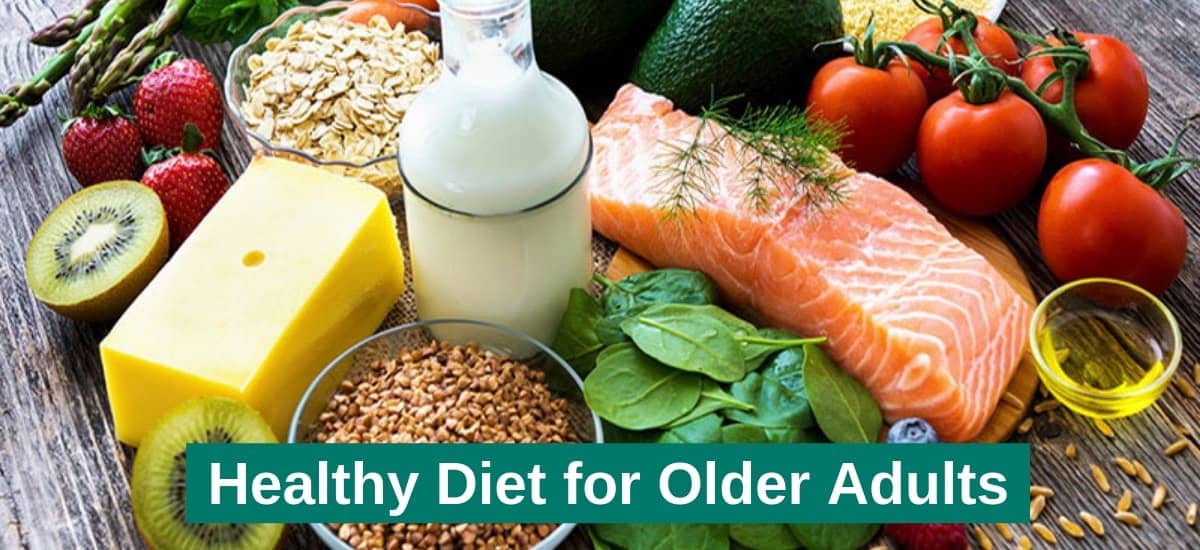Good nutrition is essential at every stage of life, but it becomes particularly important as we age. Older adults face unique nutritional challenges and opportunities that influence their overall health, energy levels, and quality of life. With age, the body undergoes changes that impact metabolism, digestion, and nutrient absorption, making a balanced diet critical for maintaining physical and mental well-being. This comprehensive guide explores the fundamentals of nutrition for older adults, emphasizing practical strategies and tips for healthy eating.
Why Nutrition Matters for Older Adults
A healthy diet supports several key aspects of aging:
- Prevention of Chronic Diseases
- Proper nutrition helps manage and prevent conditions such as heart disease, diabetes, osteoporosis, and hypertension.
- Enhanced Immune Function
- A nutrient-rich diet strengthens the immune system, reducing susceptibility to infections and illnesses.
- Improved Cognitive Health
- Nutrients like omega-3 fatty acids, antioxidants, and vitamins play a crucial role in maintaining brain health and preventing cognitive decline.
- Maintained Muscle Mass and Strength
- Adequate protein intake and physical activity help combat age-related muscle loss, known as sarcopenia.
- Better Digestive Health
- High-fiber foods promote regular bowel movements and support gut health.
Nutritional Needs for Older Adults
As people age, their nutritional requirements shift. Here are the key nutrients older adults should prioritize:
1. Protein
- Protein is essential for maintaining muscle mass, repairing tissues, and supporting immune function.
- Sources: Lean meats, poultry, fish, eggs, dairy products, beans, lentils, tofu, and nuts.
- Tip: Include a source of protein in every meal and snack.
2. Calcium and Vitamin D
- These nutrients are critical for bone health, reducing the risk of fractures and osteoporosis.
- Sources: Dairy products, fortified plant-based milks, leafy green vegetables, and fatty fish.
- Tip: Spend time outdoors for natural vitamin D from sunlight and consider supplements if necessary.
3. Fiber
- Fiber promotes digestive health and helps manage cholesterol and blood sugar levels.
- Sources: Whole grains, fruits, vegetables, legumes, nuts, and seeds.
- Tip: Gradually increase fiber intake to prevent digestive discomfort.
4. Healthy Fats
- Healthy fats support brain function and cardiovascular health.
- Sources: Olive oil, avocados, nuts, seeds, and fatty fish like salmon and mackerel.
- Tip: Limit saturated and trans fats found in processed and fried foods.
5. B Vitamins
- B vitamins, particularly B12, are important for energy production and brain function.
- Sources: Fortified cereals, eggs, dairy products, fish, and poultry.
- Tip: Older adults may need B12 supplements due to decreased absorption.
6. Potassium
- Potassium helps regulate blood pressure and supports nerve and muscle function.
- Sources: Bananas, oranges, potatoes, spinach, and beans.
- Tip: Aim to balance potassium intake with sodium for optimal heart health.
7. Antioxidants
- Antioxidants protect cells from damage and reduce inflammation.
- Sources: Colorful fruits and vegetables, green tea, and dark chocolate.
- Tip: Incorporate a variety of colors in meals to ensure diverse antioxidant intake.
Special Considerations for Older Adults
- Hydration
- Older adults are more susceptible to dehydration due to a diminished sense of thirst and age-related changes in kidney function.
- Tip: Aim for 6-8 cups of fluids daily, including water, herbal teas, and soups.
- Appetite Changes
- Reduced appetite can result from medications, medical conditions, or changes in taste and smell.
- Tip: Choose nutrient-dense foods and eat smaller, more frequent meals.
- Chewing and Swallowing Difficulties
- Dental issues or conditions like dysphagia can make eating challenging.
- Tip: Opt for softer foods, such as smoothies, mashed vegetables, and soups.
- Food Safety
- Aging weakens the immune system, increasing susceptibility to foodborne illnesses.
- Tip: Practice good hygiene, cook foods thoroughly, and avoid raw or undercooked items.
Building a Balanced Plate for Older Adults
A balanced diet for older adults should emphasize variety, moderation, and nutrient density. Follow these guidelines to build a healthy plate:
- Fill Half Your Plate with Fruits and Vegetables
- Choose a variety of colors to maximize nutrient intake.
- Include fresh, frozen, or canned options (opt for low-sodium or no-added-sugar versions).
- Allocate a Quarter of Your Plate to Protein
- Include lean proteins like chicken, fish, beans, or tofu.
- Devote a Quarter of Your Plate to Whole Grains
- Incorporate brown rice, quinoa, oats, or whole-grain bread.
- Add Healthy Fats and Dairy
- Include a small amount of healthy fats, such as olive oil or avocado.
- Incorporate low-fat or non-dairy alternatives fortified with calcium and vitamin D.
Meal Planning Tips for Older Adults
- Plan Ahead
- Create a weekly meal plan to ensure a variety of nutrient-rich foods.
- Batch Cooking
- Prepare meals in advance and freeze portions for convenience.
- Use Herbs and Spices
- Enhance flavor without adding excess salt.
- Smart Snacking
- Opt for healthy snacks like yogurt, nuts, or fruit to maintain energy levels.
Addressing Common Myths About Senior Nutrition
- Myth: Older adults need fewer nutrients.
- Truth: While calorie needs may decrease, nutrient needs remain the same or even increase.
- Myth: Supplements can replace a healthy diet.
- Truth: Supplements should complement, not replace, whole foods.
- Myth: Weight loss isn’t a concern for older adults.
- Truth: Unintentional weight loss can indicate malnutrition or underlying health issues.
The Role of Physical Activity
Pairing good nutrition with regular physical activity amplifies health benefits:
- Aerobic Exercises
- Walking, swimming, or cycling improve cardiovascular health.
- Strength Training
- Lifting weights or using resistance bands maintains muscle mass and bone density.
- Flexibility and Balance Exercises
- Yoga or tai chi reduces the risk of falls.
Seeking Professional Guidance
A registered dietitian or healthcare provider can tailor dietary recommendations to individual needs, accounting for:
- Medical conditions
- Medications that affect nutrient absorption
- Dietary preferences and restrictions
Conclusion
Nutrition for Older Adults is a cornerstone of healthy aging, supporting physical vitality, mental clarity, and emotional well-being. By focusing on nutrient-rich foods, staying hydrated, and addressing unique dietary challenges, older adults can enhance their quality of life and enjoy their golden years to the fullest. Whether you’re an older adult or a caregiver, implementing these strategies will help ensure optimal health and longevity

